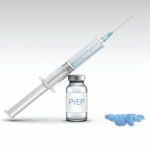Long-term use of Viread (tenofovir disoproxil fumarate, or TDF) is associated with an increased risk of end-stage liver disease (ESLD) as well as hepatocellular carcinoma (HCC, the most common form of liver cancer) among people with HIV. Publishing their findings in the journal AIDS, researchers followed members of the Data Collection on Adverse events of Anti-HIV Drugs Study (D:A:D) until they experienced their first indication of ESLD or HCC; until they died; or until six months after their last study visit.
D:A:D is a prospective cohort collaboration study begun in 1999 that follows nearly 50,000 HIV-positive individuals in Europe, the United States and Australia. The participants in this analysis were followed through January 2014.
During a median follow-up of 8.4 years, 319 cases of ESLD or HCC occurred among the cohort, for an annual incidence of 0.101 percent. Those who experienced either condition had a 62.6 percent chance of dying within one year.
After adjusting the data for various factors, the researchers found that each five years of exposure to various ARVs resulted in the following increased rates of ESLD or HCC for each drug: Zerit (stavudine, or d4T), 46 percent; Videx (didanosine, or ddI), 32 percent; Viread, 46 percent; and Lexiva (fosamprenavir), 47 percent.
Viread is included in the combination tablets Atripla (efavirenz/TDF/emtricitabine), Complera (rilpivirine/TDF/emtricitabine), Stribild (elvitegravir/cobicistat/emtricitabine/TDF) and Truvada (TDF/emtricitabine).
The increased rate for ESLD or HCC associated with Zerit or Videx use did not start to decline until six years after individuals stopped taking either drug.
As a result of the increased risk of liver disease associated with the four drugs, the researchers concluded that “intensified monitoring of liver function should hence be considered among all individuals exposed [to these drugs] for longer time periods.” While Zerit and Videx are seldom prescribed today, the researchers still said they should be avoided. They further concluded that the association of Viread with ESLD and HCC, unrelated to viral hepatitis, called for further study.
With the recent approval of the Genvoya (elvitegravir/cobicistat/emtricitabine/tenofovir alafenamide, or TAF), Gilead Sciences has introduced the first combination tablet containing an updated, less toxic version of tenofovir. The U.S. Food and Drug Administration (FDA) is also reviewing applications from Gilead for approval of a TAF-inclusive versions of Truvada and Complera.
To read the study abstract, click here.

Thinkstock






2 Comments
2 Comments